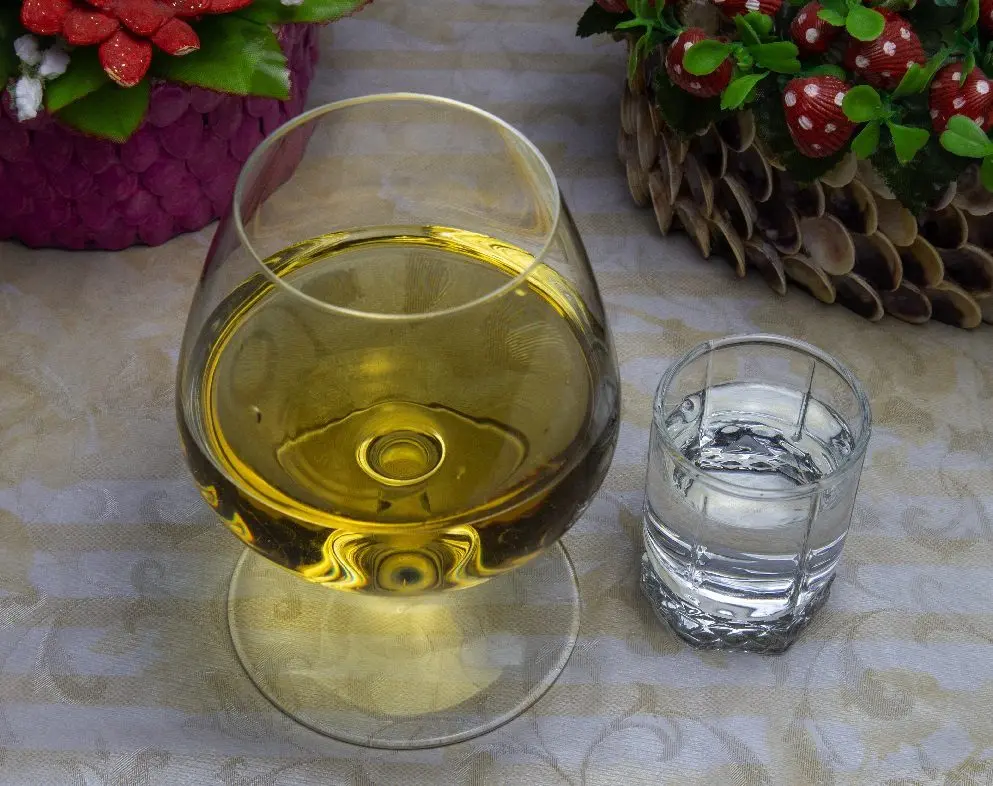Among the various types of strong alcohol, Russians prefer vodka, which is confirmed by sales statistics. The figures for 2020 show that residents of the country buy “little white” six times more often than cognac. The reasons here are not only in traditions, but also in the different properties of drinks. Next, we will figure out what is safer for health – vodka or cognac.
Technology difference
There are fundamental differences between drinks, starting with the method of production. Enterprises make vodka from ethyl alcohol, which is distilled from grain or potatoes, crops that are quite easy to grow. Rectified is delivered to vodka factories, where it is diluted with natural water, thoroughly mixed and filtered. Then the ingredients specified in the recipe are added to the vodka, brought to readiness in special vats and bottled.
The raw material for the production of cognac is grapes. The classic French technology involves the use of only certain grape varieties, most often Ugni Blanc. The berries are placed under a press and the juice is squeezed out, which is then placed in fermentation vats. The finished wort is distilled twice through an apparatus of a special design, and it is necessary to keep within until the end of March. Cognac spirits are placed in wooden barrels, where they mature for at least 30 months, and the maximum aging period is practically unlimited, reaching 100 years or more.
It is clear that cognac in production is much more expensive than vodka. Vineyards require more care than wheat fields, and it takes several years from planting vines to harvest. The cost of good equipment for the production of cognac is quite high, and Limousin oak barrels are also expensive, which are mainly purchased in France. The production time of even the most elite and expensive vodka is much shorter, which affects the price of the final product.
The impact of cognac and vodka on health
Cognac made according to the classical recipe is incomparably richer in composition. The noble drink contains organic acids that grapes give it. The components act as antioxidants, protect cells from free radicals and prevent the development of inflammatory processes. In small quantities, cognac gently dilates blood vessels and serves as a means of preventing heart disease.
The nutritional value of any vodka is zero. There are no useful components in ethyl alcohol, it does not contain vitamins and microelements. Vodka also acts on blood vessels, but works more aggressively. Ethyl alcohol diluted with water penetrates the blood faster and relaxes the vascular walls too quickly, so the drink is not recommended for people suffering from heart disease. However, experts believe that with moderate use, good vodka will not harm the body.

But a hangover from vodka is considered the easiest. The breakdown of ethanol takes place in the liver, so the fewer ingredients contained in alcohol, the easier it is for the body to cope with its processing. The composition of cognac is quite complex and can include up to 500 components, including tannins, which do not always benefit the body. In addition, manufacturers add caramel and sugar to cheap brands, which also prevents the rapid removal of ethanol.
However, it is worth noting that due to the purity of the composition, vodka is addictive faster than other alcoholic drinks, so there are much more “vodka” alcoholics than “cognac”, “wine” and even “beer” ones.
Thus, the popularity of vodka has every reason. On the shelves of stores there are many good brands based on high-purity alcohol “Alpha”. The taste and aroma of such drinks is devoid of alcohol sharpness, so they are drunk easily and without consequences. In the same price range, it is impossible to find an elite cognac made according to the classical technology. At best, it will be an inexpensive brandy that has little in common with a noble drink. For this reason, the vast majority of Russians adhere to traditions in the choice of drinks and continue to prefer vodka.










